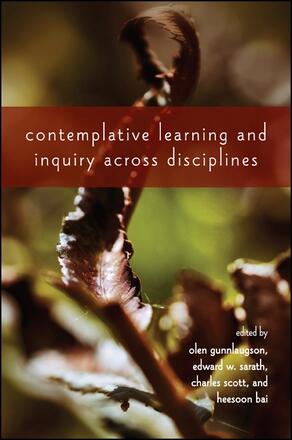
Contemplative Learning and Inquiry across Disciplines
Alternative formats available from:
A wide-ranging consideration of the emerging field of contemplative education.
Description
Contemplative approaches to higher education have been gaining in popularity and application across a wide range of disciplines. Spurring conferences, a growing body of literature, and several academic programs or centers, these approaches promise to contribute significantly to higher education in the years to come. This volume provides an overview of the current landscape of contemplative instruction, pedagogy, philosophy, and curriculum from the perspectives of leading researchers and scholar-practitioners. Contributors come from a variety of disciplines, including education, management and leadership studies, humanities, social sciences, the arts, and information science. Drawing on diverse contexts, the essays reveal the applicability of contemplative studies as a watershed field, capable of informing, enriching, and sustaining the many disciplines and instructional contexts that comprise higher education. Chapters discuss the theoretical aspects of the field; the details, experiences, and challenges of contemplative approaches; and the hopes and concerns for the future of this field.
Olen Gunnlaugson is Assistant Professor of Leadership and Organizational Development at Université Laval, Canada, and the coeditor (with Sean Esbjörn-Hargens and Jonathan Reams) of Integral Education: New Directions for Higher Learning, also published by SUNY Press. Edward W. Sarath is Professor of Music and Director of the Program in Creativity and Consciousness Studies at the University of Michigan and the author of Improvisation, Creativity, and Consciousness: Jazz as Integral Template for Music, Education, and Society, also published by SUNY Press. At Simon Fraser University, Canada, Charles Scott teaches Education and Heesoon Bai is Professor of Philosophy of Education. Bai is the coeditor (with Marcia McKenzie, Paul Hart, and Bob Jickling) of Fields of Green: Restorying Culture, Environment and Education.
Reviews
"This volume will educate the simply curious, inspire the deeply committed, and advance the conversation among proponents and skeptics of contemplative inquiry, which is all to the good for the larger discussion of why we teach. " — Teaching Theology and Religion